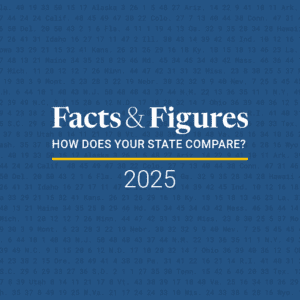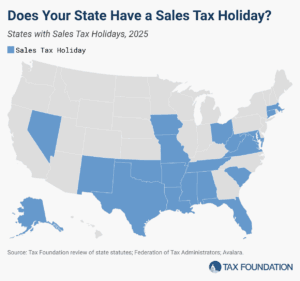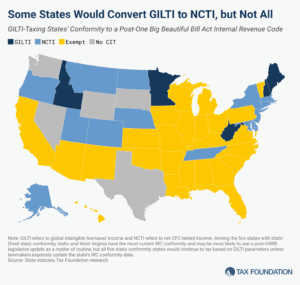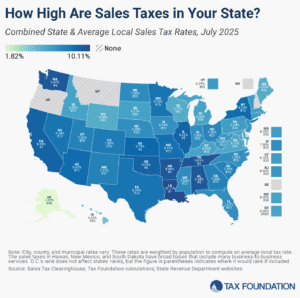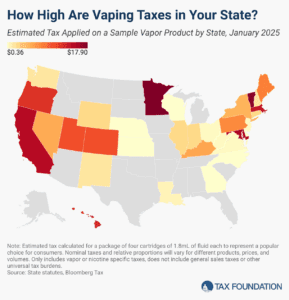This page is intended as a resource for policymakers and others focused on state-level tax policy, providing one-click access to key resources and highlighting papers on some of the biggest issues of 2025. It is also an open invitation to connect directly with our experts with questions or requests for legislative testimony. Contact information for the Tax Foundation expert assigned to each state can be found below.
The past four years have seen the majority of states adopt rate cuts, particularly to individual income taxes. Some states have gone even further by easing compliance costs for hybrid and remote workers, offering permanent full expensing of capital investments, and adopting other reforms to promote mobility and modernization in an increasingly competitive state tax landscape.
In addition to papers on major issues in contemporary tax policy, we also have resources like our six-part “boot camp” series for state lawmakers and others interested in state tax policy, along with publications like the State Business Tax Climate Index (a comparison of the competitiveness of states’ tax structures) and Facts & Figures (a handy guide to state tax rates, collections, and burdens data). We invite you to treat this page as a launching point as you think about state tax policy issues throughout 2025.
Contact an Expert Get State Tax Reform Guide See Featured Resources
The Tax Foundation has a talented team of experts, each assigned to his or her own set of states. If you have any questions, or if we can be of assistance to you in any way, please reach out to the tax policy expert assigned to your state.
Contact the Tax Foundation Expert for Your State
- Abir Mandal: AL, DE, NE, IA, MN, NM, NY, NC, SD, WV
- Andrey Yushkov: AZ, CT, DC, GA, HI, IN, MD, MI, OR, VA
- Jared Walczak: AK, CA, UT, WA, WY
- Joseph Johns: AR, FL, ME, MA, MS, MO, ND, OH, PA, TN
- Katherine Loughead: IL, KS, KY, NH, RI, WI
- Manish Bhatt: CO, ID, LA, MT, NV, NJ, OK, SC, TX, VT
- Adam Hoffer and Jacob Macumber-Rosin: All excise tax issues
The Tax Landscape Is Changing
In an era of enhanced mobility, where tax competition matters more than ever, an out-of-date tax code just won’t do. Lawmakers should modernize their tax codes to position their states for success in a rapidly changing economic landscape.
Our new booklet highlights five tax reforms that most states could undertake to grow their economies and position themselves for success. Download the guide below to learn how states can:
- Drop largely unenforced requirements that penalize workplace flexibility
- Eliminate a common tax provision that penalizes in-state investment
- Prevent unlegislated inflation-linked income tax increases
- Dramatically reduce small business tax compliance costs at a trivial cost to government
- Protect homeowners from soaring property tax bills without breaking the system
Download State Tax Reform Handbook


